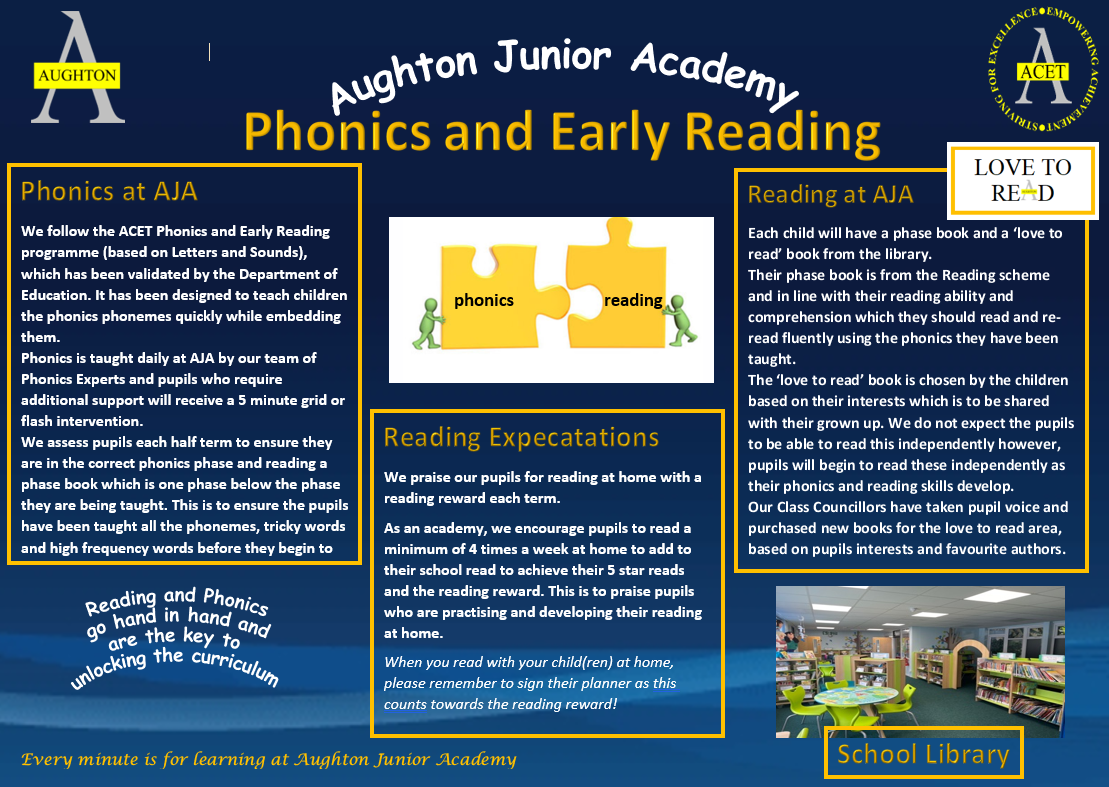Phonics and Early Reading
At Aughton Junior Academy phonics is taught from Foundation Stage 2 through to Year 2 using a systematic, synthetic approach following the ACET Phonics Scheme.
The ACET Phonics and Early Reading Programme, covers all the requirements for the Letters and Sounds framework. It has slight amendments to the teaching sequence and has been divided up into six clear phases. Additionally, each phase has then been divided into sub-phases to support phonics acquisition and to allow children to achieve the small milestones within each one. The sequence overview is ambitious and has been designed to consolidate all previously taught phonics while children are acquiring new phonics knowledge. The ACET Phonics and Early reading scheme provides fidelity to the Letters and Sounds framework and supporting resources to meet the recent DfE guidelines.
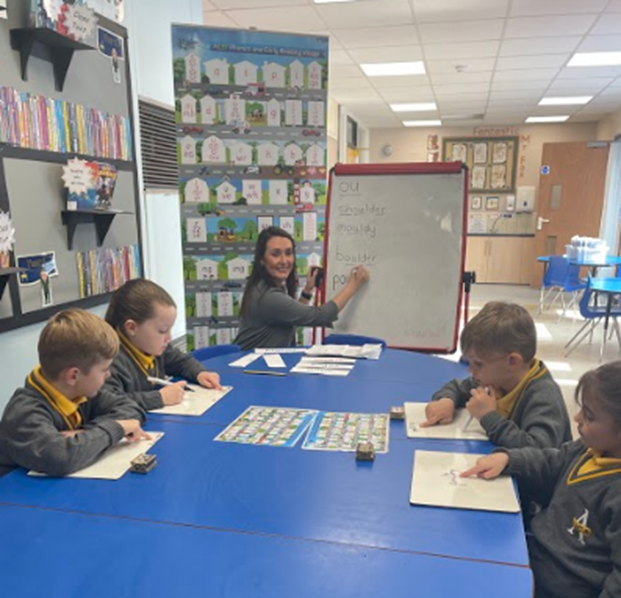
The Intent of the ACET Phonics and Early Reading Programme at Aughton Junior Academy
- We passionately believe reading is the key to a child’s success and believe with the support of all stakeholders, we can achieve this and ensure all of our pupils reach their full potential.
- We want to ensure all pupils are reading a range of text types and articulating a love of reading in KS2.
- We want a clear vision of the Early Reading intent to be shared with all stakeholders including pupils, staff, parents and governors.
- We want to strengthen collaborative working within the school ensuring the SENCO’s tracking and evidence of the impact of interventions is closing the gap between different pupil groups.
Teaching of Phonics at AJA
Phonics at AJA is taught daily in FS2, Y1 and Y2 using a streamed approach. Our pupils are assessed each half-term and will be in a phonics group which is at their current phonic level.
For children accessing Phase 1 phonics, children will complete activities in small groups that develop their speaking and listening skills and lay the foundations for the phonic work which starts in Phase 2. The emphasis during Phase 1 is to get children attuned to the sounds around them and ready to begin developing oral blending and segmenting skills. Children will use Phase 1 books to tell stories orally.
Lessons for Phases 2 to 5 follow the structure of ‘Review, Teach, Practise, Apply’ to ensure that children are consolidating phonic knowledge and skills over time and that they are able to apply them in context. During lessons there are opportunities for discussing new vocabulary and ensuring letter formation is correct.
Phonics is threaded through the Foundation and KS1 provision to give pupils opportunities to rehearse, practise and consolidate what they have learnt in their phonics lessons in their independent play.
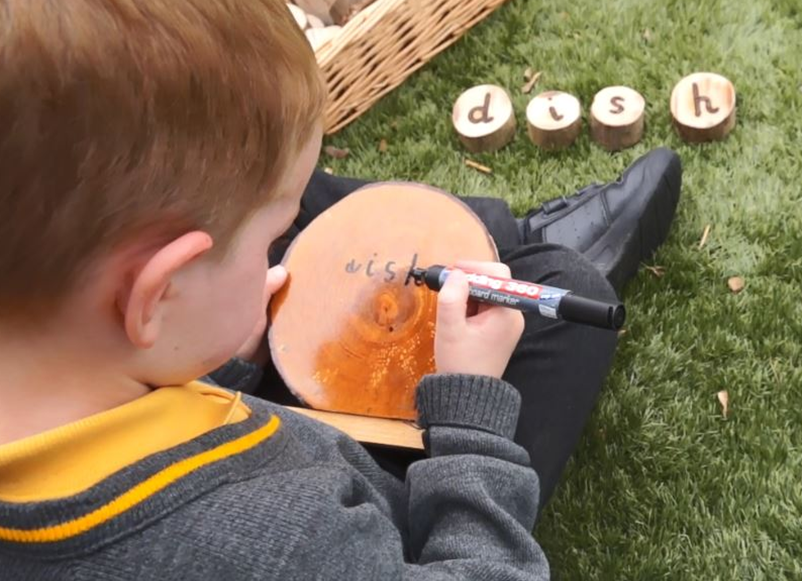
By the end of Foundation Stage children at the ‘expected’ level will be secure in phase 3d.
- By the end of Year 1 children at age related expectations (ARE) will be secure in phase 5f.
- By the end of Year 2 children at ARE will be secure in phase 6.
Decodable Reading Books
The ACET SSP has been designed around the Floppy Phonics books from Oxford Reading Tree. The progression is ambitious and allows opportunities for pupils to embed and become fluent readers. The most important part to note is that no child will read a book where they have not been taught the sounds.
When pupils are assessed they will read the book that is one sub-phase before. The anomaly to this would be a child who has jumped more than one sub-phase so they should read a minimum of 2 books on the next sub-phase and continue in this pattern until they are reading one sub-phase behind the one they are currently being taught. This is at the discretion of the class teacher and Early Reading Lead as pupils should be reading these texts with 100% accuracy. This is important as the sounds and tricky words taught in the phases appear in the phase books and therefore, pupils must read all the phases to be able to rehearse and embed the skill of reading them.
To note
The Floppy’s Phonics Books contain the iconic characters of Mum, Dad, Biff, Chip, Kipper and Floppy, as well as, Wilf, Wilma, Grandma and Mrs May. Their names are frequently written throughout the stories and therefore should be treated as words the children should begin to read fluently, quickly and ‘at a glance’. As these names do contain sounds taught at the later stages in the scheme, it is vital that these names are taught and recapped prior to reading the book. They should be treated in a similar way to ‘Tricky Words’. However, the child is not expected to be able to read these words independently and therefore if they cannot, it is the expectation that the adult would read the word for the child in that instance.
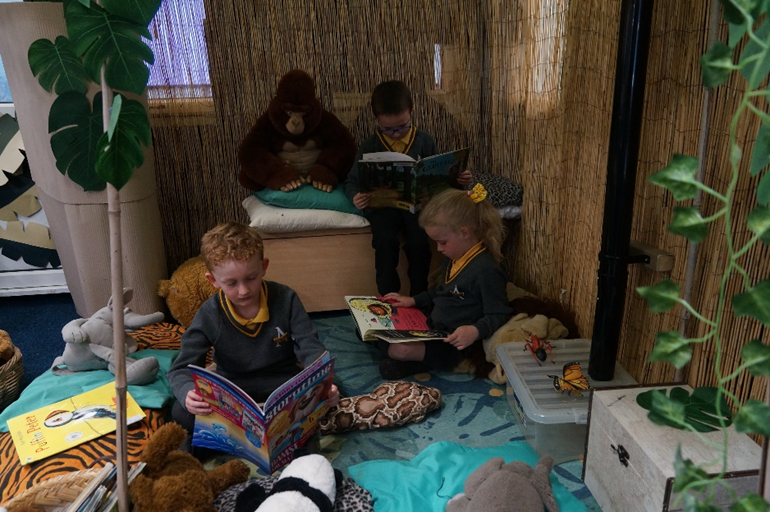
Developing a Love of Reading
Reading is a key skill that children need to support them in all areas of the curriculum. Pupils who are fluent readers can learn more, simply because they can read and gain knowledge for themselves. Research shows that being able to read accurately by the age of six, has a strong correlation with future academic success. It is therefore important to focus on getting early reading right and is one of the key aims of the ACET SSP.
“Learn to read accurately by the age of six, read to learn for the rest of your life” (Ofsted 2021).
Here are a few ways we prioritise reading at AJA;
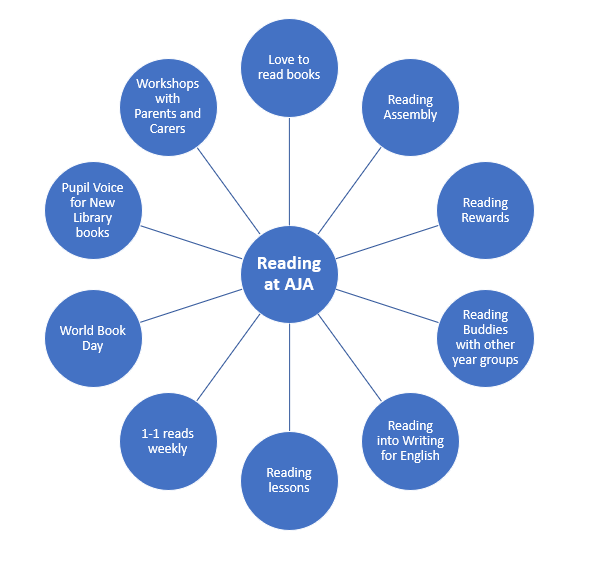
Assessment of Phonics
All pupils are assessed each half-term using the assessment booklet. The children are then regrouped by the phonics and early reading lead ready for teaching the following half-term. If there are any gaps in children's learning, they will then access 1-1 interventions.
Year 1 Phonics Screening Check
This is a statutory assessment that the children take at the end of Year 1. They will complete it 1 to 1 with a teacher or familiar qualified adult in school. The test is a list of 40 real and pseudo (alien) words.
As a child goes through the check they are expected to apply more advanced phonics skills. The pass mark has remained at 32+ since its introduction in 2011 and children who do not pass in Year 1 are required to retake the test at the end of Year 2.
We will prepare children for this test from FS2 onwards in an informal and fun way. We use the check as a measure not the finish line and aim for the children to be scoring 40 marks in year 1 to demonstrate their sound grasp of phonics knowledge. Their progress will be tracked and shared with parents regularly and any additional support needed with be put in place.
Parent Partnerships and Home Reading
We recognise that children learn and develop well when there is a strong partnership between practitioners and parents and that home school links are very important in reading.
Our Phonics programme supports parents being fully aware of their child’s phonics ability, what phase they are completing, what book they are reading and how to support their next steps.
The ACET SSP encourages the children to complete a ‘Read and Repeat’ cycle to support their fluency development. It also promotes a love of reading and the importance of discussion around stories. This means each week (for the whole week) each child will take home –
·One phonic reading book from their current sub-phase for them to read to their parents/ carers.
·One ‘reading for pleasure’ book from the school library for their parents/ carers to read to/with them.
Parents also have access to the ‘Reading Level Expectations’ in your child's planner. . This provides parents with a simple guide of what phonemes and words are taught in each sub-phase and what other skills their child will need to master before moving onto the next level. If pupils are focussing on the same objectives both at school and at home, they will consolidate their learning and make progress quickly.
For the Reception children, who will begin on Phase 1 books, we have developed a Phonics Workbook to take home which supports the child with acquiring and rehearsing their initial sounds.
Supporting Pupils
For any pupil who is working below the expected standard from the programmes overview, they will access 1-1 intervention which are specific to them. We have a number of phonics interventions that run to support pupils to become secure with specific phonemes or words which are outlined below;
Grid Time - to revisit phonemes (sounds)
Blending - to practise segmenting and blending orally
Flash - to recap and retain tricky and high frequency words
Fluency - to develop pace and confidence when reading words on sight
All of our phonics interventions take place 1-1 and have shown high impact through revisiting daily.
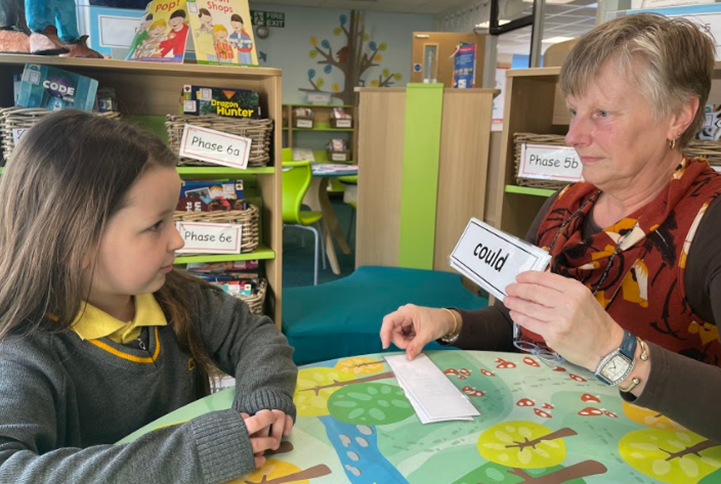
A home pack will also be sent in your child's planner to practise.
Useful Links
Useful Videos
- Pronouncing sounds correctly
- Blending sounds to read words
- What are sound buttons?
- What is the Phonics Screening Check?
- What are alien words and why do we read them?
